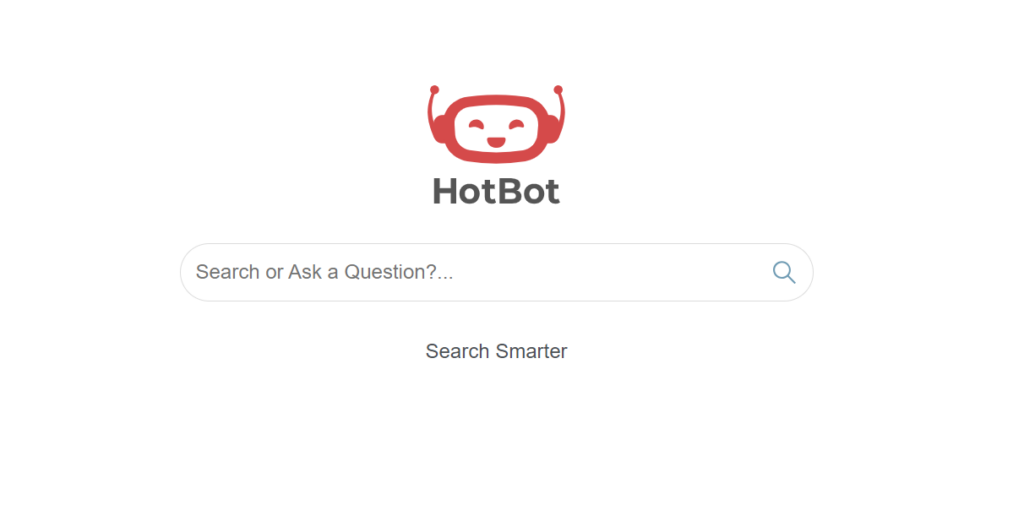HotBot Search Engine: A Retrospective on its Advancements, Challenges and Evolution in the tough Internet Age
Once a popular search engine, HotBot lost relevance due to emerging competitors, ownership and innovation issues. It now operates as an anonymizing VPN service and it just restarted as a Search Engine again!
September 30, 2023
HotBot was once a prominent search engine during the early days of the Internet. Launched in 1996, it quickly gained popularity for its comprehensive and powerful search capabilities. Created by Wired Magazine, HotBot aimed to revolutionize the way people find information online.

What set HotBot apart from other search engines of its time was its remarkable search accuracy and speed. It indexed millions of web pages, making it one of the largest search databases at the time. It utilized advanced algorithms to deliver relevant search results, enabling users to easily find what they were looking for. Bot those were not the only ones, here is a short list with some of the key differences:
1. Comprehensive Indexing: HotBot boasted one of the largest search databases, indexing millions of web pages. This extensive indexing allowed users to access a wide range of information and increased the likelihood of finding relevant search results.
2. Accurate and Relevant Results: HotBot was known for its powerful algorithms that delivered highly accurate and relevant search results. This made it easier for users to find the information they were looking for quickly and efficiently.
3. Advanced Search Features: HotBot implemented advanced search features that allowed users to refine their searches based on specific criteria. Users could narrow down their results based on factors such as date, file type, and domain, enhancing the precision and customization of their searches.
4. User-friendly Interface: HotBot had a simple and intuitive user interface. Users could enter their queries and retrieve results quickly. The search results were presented in a clean and organized manner, making it easy to navigate through the information.
5. Commitment to Privacy: HotBot prioritized user privacy and made efforts to protect personal information. This commitment to privacy was noteworthy during a time when privacy concerns were not as prevalent as they are today.
HotBot faced several challenges that eventually led to its decline and loss of market share. One significant factor was the emergence of dominant search engines like Google. Additionally, HotBot struggled to adapt to the ever-evolving technology landscape. It failed to keep up with the rapid advancements in search engine technology, including improvements in indexing, relevancy algorithms, and user experience. As a result, users began to migrate to other search engines that offered more advanced features and better search results.
Another factor that contributed to HotBot’s decline was the lack of innovation and investment in the search engine. As competing search engines continued to evolve and introduce new features, HotBot failed to keep pace. This stagnation resulted in a loss of user interest and ultimately impacted its user base and relevance.
HotBot was also hit by financial challenges. Wired Magazine, the creator of HotBot, faced financial difficulties and underwent restructuring. The lack of financial resources further hindered HotBot’s ability to invest in research and development and stay competitive in the search engine market.
Before the dot-com bubble burst in the early 2000s, HotBot was acquired by Lycos, a popular web portal of the time. After the acquisition, HotBot experienced low priority and thus minimal development, causing it gradually fade into obscurity, especially with the growing prominence of search engines.
However, even though HotBot no longer held its place as one of the top search engines, it didn’t entirely disappear. HotBot actually continued its existence on a smaller scale. In 2011, Lycos (which still owned HotBot) attempted to revive the brand with the launch of HotBot SAF – a search product aiming to filter out illogical and unproven results from user-generated platforms, according to Kris Barton, Chief Operations Officer of Lycos.
Today, HotBot operates as a very discreet anticipation software company. It has also initially transitioned from a search engine to providing the service as an anonymizing VPN to allow people surfing the internet in privacy and very, very recently restarted its Search Engine operations! Yay!

#HotBot #SearchEngine #InternetHistory #WiredMagazine #ComprehensiveIndexing #AccurateSearchResults #AdvancedSearchFeatures #UserFriendlyInterface #PrivacyProtection #InternetPrivacy #ImprovementInSearchTechnology #EvolutionOfInternet #InternetNavigation #AnonymizingVPN #Lycos
